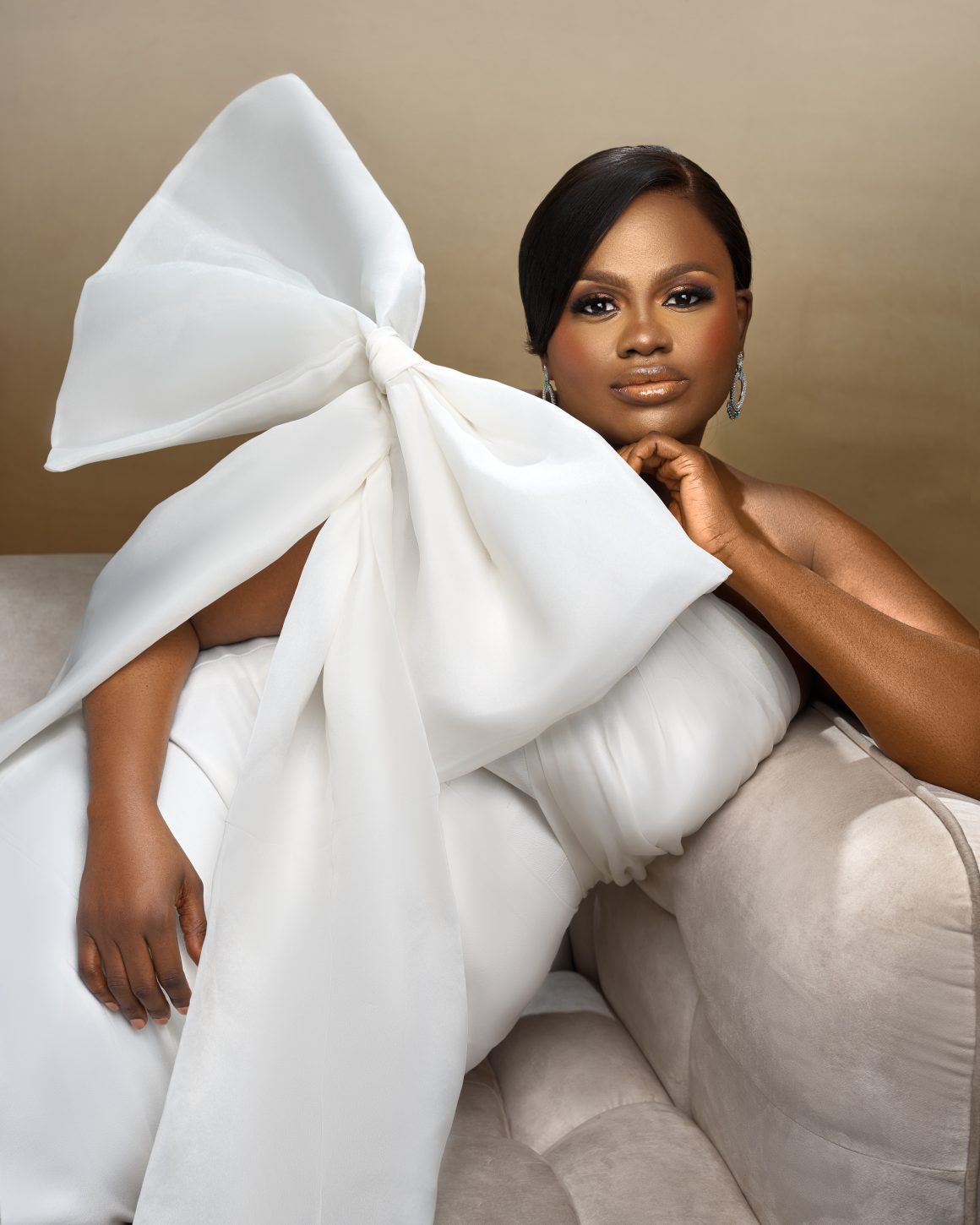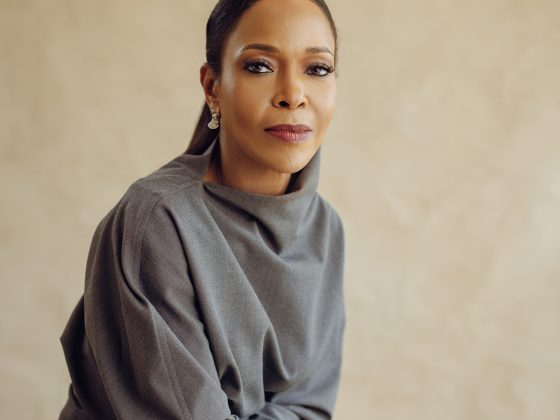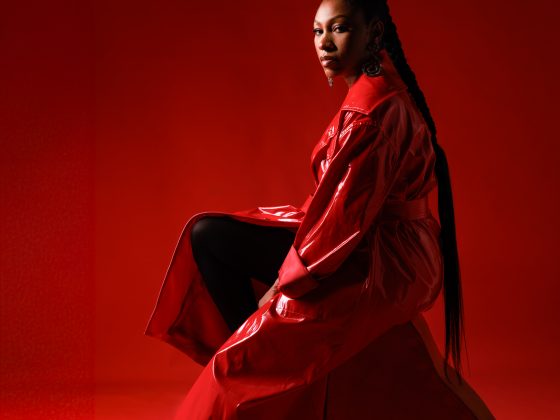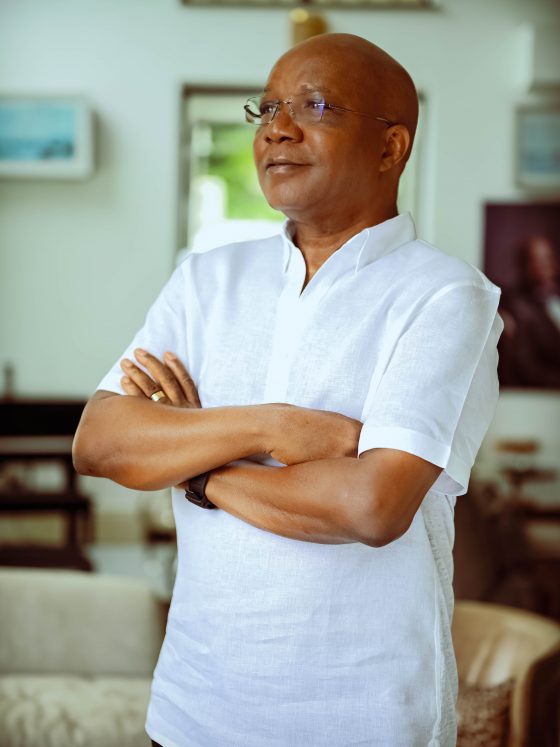Jade Osiberu is not just a filmmaker—she’s a trailblazer, a visionary, and a force reshaping the African film industry. With a string of successes that include Gangs of Lagos—Amazon Prime’s first original film in Africa, which took the world by storm and charted across multiple countries—and Brotherhood, the highest-grossing Nollywood film of 2022, Jade has firmly established herself as one of the most influential voices in contemporary cinema.
Her journey began with Isoken, her critically acclaimed directorial debut, which became the third-highest-grossing Nigerian film of 2017 and earned multiple international accolades, including Best Film and Best Director at the Africa Magic Viewers’ Choice Awards. She continued to rise with Sugar Rush in 2019, another record-breaking hit, followed by her impactful production of Ayinla, the award-winning biopic by Tunde Kelani.
But Jade’s ambitions don’t stop there. In 2023, she made history as the first African filmmaker to sign a three-year exclusive overall deal with Amazon Prime, a partnership that resulted in Christmas in Lagos, a groundbreaking film showcasing the depth of her talent and her commitment to expanding African storytelling on the global stage. She has been recognized by Variety, Hollywood Reporter, and Vanity Fair as one of Africa’s most powerful women in media, and in the same year, she became a member of the Academy of Motion Picture Arts and Sciences.
From Isoken to Gangs of Lagos, and now with her ongoing partnership with Amazon Prime, Jade Osiberu continues to redefine what is possible in African cinema. In this interview with Funke Babs-Kufeji, she discusses her work not just being about entertainment but about creating a legacy that inspires and paves the way for future generations of filmmakers.

- You’ve had an incredibly successful career as a writer, director, and producer. Looking back, what inspired you to pursue a career in filmmaking, and what were some of the key moments that helped shape your journey?
Growing up I was surrounded by our rich Nigerian stories, our vibrant culture and its nuances. I wanted to use film as a medium to spotlight these narratives, celebrate your voices, and share our authentic stories with the world.
- Your films, like Gangs of Lagos and Brotherhood, have garnered international acclaim. What do you think it is about your storytelling that resonates so deeply with both local and global audiences?
I believe the power of storytelling lies in its ability to connect with universal emotions while staying true to its roots. In films like Gangs of Lagos and Brotherhood, I focus on authentic characters and narratives that reflect the complexities of life in communities—stories of love, family, loyalty, and survival. These are experiences everyone can relate to, no matter where they’re from.
- Your first film, Isoken, was not only a commercial success but also received several accolades. How did you balance the creative aspects of filmmaking with the pressure of producing a film that would be both meaningful and commercially viable?
With Isoken, my focus was on telling a story that was authentic and culturally resonant, while also ensuring it had broad appeal. Balancing creativity with commercial viability is always a challenge, but I’ve found that when you tell stories that are honest and relatable, they naturally connect with audiences. I paid close attention to every aspect of the film—crafting strong characters, weaving humor and heart into the narrative, and ensuring the production quality met high standards. Ultimately, I think the success of Isoken came from its ability to tackle an important cultural theme in a way that felt accessible and entertaining.

- You’ve been recognized as one of the most powerful women in media by prestigious outlets like Variety and Hollywood Reporter. What does this recognition mean to you, and how do you balance your role as a leader with the personal demands of your career?
Being recognized by outlets like Variety and Hollywood Reporter is a reminder of how far African storytellers have come on the global stage and how the creative industry is reshaping how African stories are perceived. Balancing leadership with the personal demands of my career is an ongoing process. I’ve learned the importance of prioritizing—knowing when to focus on my projects and when to step back and recharge. I also lean on my team and collaborators, who share my vision and help bring it to life.

- As a filmmaker, you have the power to shape narratives. How do you approach telling stories that empower women and represent African voices?
I approach stories with the intention of amplifying African and specifically, Nigerian voices. For me, it’s about creating multidimensional characters and women who are strong, vulnerable and powerful. Through my stories, I hope to showcase the beauty, complexity, and humanity of people. Whether it’s highlighting everyday struggles or celebrating our way of life, like how we do Christmas in Lagos. I believe representation is powerful, and it has the ability to shape how we see ourselves and how the world sees us.
- What are some of the most important lessons you’ve learned as a woman in leadership, particularly in the entertainment industry?
One of the most important lessons I’ve learned as a woman in leadership is the value of resilience and self-belief. I’ve learned to trust my vision, embrace my unique voice, and not let setbacks define my journey.
Another key lesson is the importance of collaboration. No one succeeds alone, and building a supportive network of allies—both women and men—have been instrumental in my growth. Equally important is knowing when to say no. Protecting your time, energy, and creative integrity is vital in an industry that can sometimes demand more than it gives.

- Christmas in Lagos is your most recent movie project. What inspired the movie?
The inspiration for Christmas in Lagos came from a desire to capture the unique spirit of the holiday season in Lagos, a city known for its vibrant culture and lively energy. Christmas in Lagos is a time when families come together, but it’s also a time when the city bursts with excitement, music, and celebrations. I wanted to create a film that reflects the warmth, joy, and sometimes chaotic beauty of the season here—while also exploring universal themes like family, love, and the sense of belonging that many people can relate to during the holidays.
What makes Lagos special during Christmas is the fusion of traditional African customs with global influences, and I wanted to highlight that dynamic. Whether it’s the festive decorations, the street parades, or the bustling markets, Lagos at Christmas has a rhythm that’s unlike anywhere else. This movie is my love letter to the city, capturing both its magic and its realness during one of the most cherished times of the year.
- For Christmas in Lagos what was the directing process like?
The directing process for Christmas in Lagos was both challenging and rewarding, especially because I wanted to capture the true essence of the city during the holiday season. Lagos is so dynamic, with its vibrant streets, diverse communities, and unique blend of culture, so my approach had to be both thoughtful and flexible.

I worked closely with the production team to find the right locations that truly represent the spirit of Lagos—whether it was the lively markets, the cozy homes, or the festive streets. I also collaborated with the cast to ensure that their performances were authentic.
In terms of directing the scenes, I paid special attention to the energy of the city and how it influences the characters’ interactions. Christmas in Lagos isn’t just about grand celebrations; it’s about those intimate moments between family and friends, the humor, the joy, and sometimes even the chaos that comes with the season. I wanted those nuances to come through in the film.
It was also important to blend the festive elements with the emotional depth of the story—showing not just the fun and celebration but also the personal journeys of the characters. Overall, it was about finding a balance between creating a heartwarming holiday film and capturing the authenticity of life in Lagos.
- You’ve been a key player in the Nollywood industry, which is renowned for its vibrant culture. How does African culture, particularly in fashion, influence your personal style and the characters you portray in your films?
African culture, especially fashion, plays a significant role in shaping both my personal style and the characters I portray in my films. Fashion in Africa is not just about clothing; it’s an expression of identity, history, and creativity. I draw inspiration from the rich fabrics, colors, and designs that are deeply rooted in African tradition, but I also enjoy blending these elements with contemporary styles to reflect how African culture continues to evolve and influence global trends.
My personal style has evolved over the years. At the moment, I gravitate towards bold colours, rich prints, much like the vibrant culture I’m a part of and simple, streamlined silhouettes. I believe fashion should be an extension of who you are—it’s about embracing your roots while celebrating your individuality.
When it comes to the characters in my films, I take a similar approach. The way a character dresses often reflects their personality, background, and the environment they’re in. In films like Christmas in Lagos, fashion isn’t just an aesthetic choice—it helps tell the story and adds depth to the character. Whether it’s in an iconic gele or a trendy, eclectic outfit, we used fashion as a tool to connect the audience to the cultural context of the story.
For Christmas in Lagos we spent a lot of time on fashion, and you’ll get to see it when you watch it. It was very important to showcase our homegrown fashion brands and we collaborated with quite a number of them because what’s a Christmas in Lagos without major fashion moments.
- Given the global recognition of your work, do you feel that African filmmakers and African fashion are receiving the attention they deserve on the world stage? How do you see the future of African cinema and fashion evolving?
While African filmmakers and African fashion are undoubtedly gaining more global recognition, I still believe we have a long way to go in fully receiving the attention and respect we deserve on the world stage. The growth in visibility is exciting, but it’s also important to ensure that the recognition is not fleeting—it must be sustained and meaningful. African cinema and fashion are both rich in history, diversity, and creativity, and they have the potential to reshape global narratives and trends.

In film, we are starting to see a new era where African stories are not only seen as niche but as universal. African filmmakers are increasingly gaining international recognition. What excites me is the way African filmmakers are blending traditional storytelling with modern cinematic techniques, producing films that resonate with global audiences while remaining deeply rooted in African culture. The future of African cinema is bright, and we are on the verge of a global movement where African stories are celebrated for their depth, authenticity, and relevance.
As for African fashion, it has already begun to influence global trends, but there is still much room for growth. African designers are pushing boundaries with bold prints, sustainable practices, and innovative designs.
You’ve achieved so much already, but what’s next for you? What future projects are you most excited about, and what other areas of your career would you like to explore?
We’ve just premiered Christmas in Lagos, and the feedback has been great so far, so first and foremost, I’m looking forward to the 20th of December, when the world gets to see it on Prime Video. There are many exciting projects in the pipeline, and I’m looking forward to them all and to continue to tell authentic African stories that resonate on a global scale the best way I can.
- What is your vision for the future of Nigerian cinema? What role do you see our filmmakers playing in the global media landscape in the years to come?
My vision for the future of Nigerian cinema is one of growth, innovation, increased monetization and global recognition. Nollywood has already made incredible strides in recent years, but I see an even brighter future ahead as we continue to push boundaries and explore new forms of storytelling. My vision is for producers to actually get to earn off their work which will enable them to become more ambitious to create more diverse stories, with stories from all walks of life, showcasing the full range of human experience—whether it’s love, politics, family, or even fantasy. The key will be blending the rich traditions of Nigerian storytelling with modern cinematic techniques, making our films both globally relevant and deeply rooted in our culture.In the coming years, Nigerian filmmakers will play an increasingly important role in the global media landscape. As global audiences continue to embrace stories from different parts of the world, Nigerian cinema, with its energy, vibrancy, and authenticity, will stand out. The unique cultural experiences we bring to the screen will resonate with audiences everywhere, especially as the world becomes more interconnected. Nigerian filmmakers have the opportunity to shape global narratives and challenge stereotypes, showing the world that African stories are not just important—they are universal.
I believe Nigerian cinema will continue to evolve, and we will see even more collaborations with international filmmakers, bringing fresh perspectives and creating films that transcend cultural and linguistic barriers.
What does empowerment mean to you, and how can we empower more women, especially in industries where women are often underrepresented, to pursue their dreams fearlessly?
Empowerment, to me, means giving women the tools, confidence, and support they need to take control of their lives and break through the barriers that hold them back. It’s about creating spaces where women can express themselves freely, without fear of judgment or limitation, and where their voices are not only heard but valued.
In industries where women are underrepresented, such as film, the key to empowerment is representation and opportunity. We need more women in leadership roles, behind the camera, making decisions, and shaping narratives. One of the ways we can empower more women is by providing mentorship and resources, creating a network of support where women can learn from each other and share their experiences.
We also need to challenge the existing norms and encourage women to pursue their dreams without fear of failure. This means celebrating their successes, but also being open about the challenges they face so that younger women entering these fields know they’re not alone.
16. What advice will you give young people who work in the film industry?
If you work in the industry and you’re struggling to see a clear path to the future, my advice would be to keep to your wits about you, diversify your reading, listen beyond gossip, read & listen to podcasts about the global film industry, to try and find credible sources of information. All industries go through seasons even, Hollywood has spent the last few years trying to bounce back from COVID and then the arbiter’s strike. Some people are neck deep in the work of building this industry, get off twitter and the WhatsApp groups and join them. That’s where the knowledge you are really seeking is; it’s in doing the work, the making mistakes, thawing some wins, some setbacks, some losses and then getting back to the arena. The revolution will be televised, the industry will grow from strength to strength and it’s your decision to choose to be part of making it happen.













